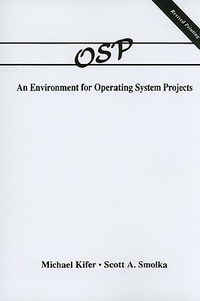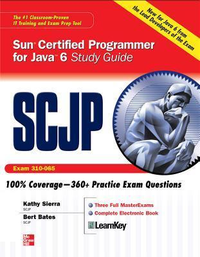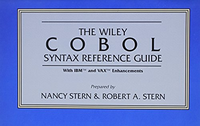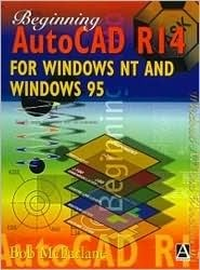OSP: An Environment for Operating System Projects

Summary
OSP, the Operating System Project, is a collection of modules that together constitute a modem-day operating system. The ideal complement to any operating system textbook, OSP generates programming projects to supplement an introductory course in operating system design. Developed by Michael Kifer and Scott A. Smolka of SUNY at Stony Brook, OSP helps you understand operating system concepts by allowing you to implement modules of an actual system, each of which performs a basic operating system service. OSP is driven by a sophisticated simulator that creates the illusion of a dynamically evolving collection of user processes to be multiprogrammed. The simulator automatically detects many logical errors in your programs. This OSP Programmers and User's Manual provides all the information you need to complete programming projects, including a section on getting started, an overview of the architecture of OSP, a reference section, and a user's guide that explains how to compile and run your programs. An Instructor's Manual for this title.
Similar Books
-
 SCJP Sun Certified Programmer for Java 6 Study Guide
SCJP Sun Certified Programmer for Java 6 Study Guideby Kathy Sierra
-
 Sams Teach Yourself C++ in 21 Days
Sams Teach Yourself C++ in 21 Daysby Jesse Liberty
-
 Database Systems Using Oracle
Database Systems Using Oracleby Nilesh Shah
-

-
 Excel 2000 Developer's Handbook
Excel 2000 Developer's Handbookby Marion Cottingham
-

-

-
 Simulation using PROMODEL w/CD-ROM
Simulation using PROMODEL w/CD-ROMby Charles R. Harrell
-
 The Wiley COBOL Syntax Reference Guide: With IBM and VAX Enhancements
The Wiley COBOL Syntax Reference Guide: With IBM and VAX Enhancementsby Nancy B. Stern
-
 Beginning Autocad R14: For Windows Nt & Windows 95
Beginning Autocad R14: For Windows Nt & Windows 95by Robert McFarlane
-
 A+ Guide to PC Hardware Maintenance & Repair
A+ Guide to PC Hardware Maintenance & Repairby Michael Graves